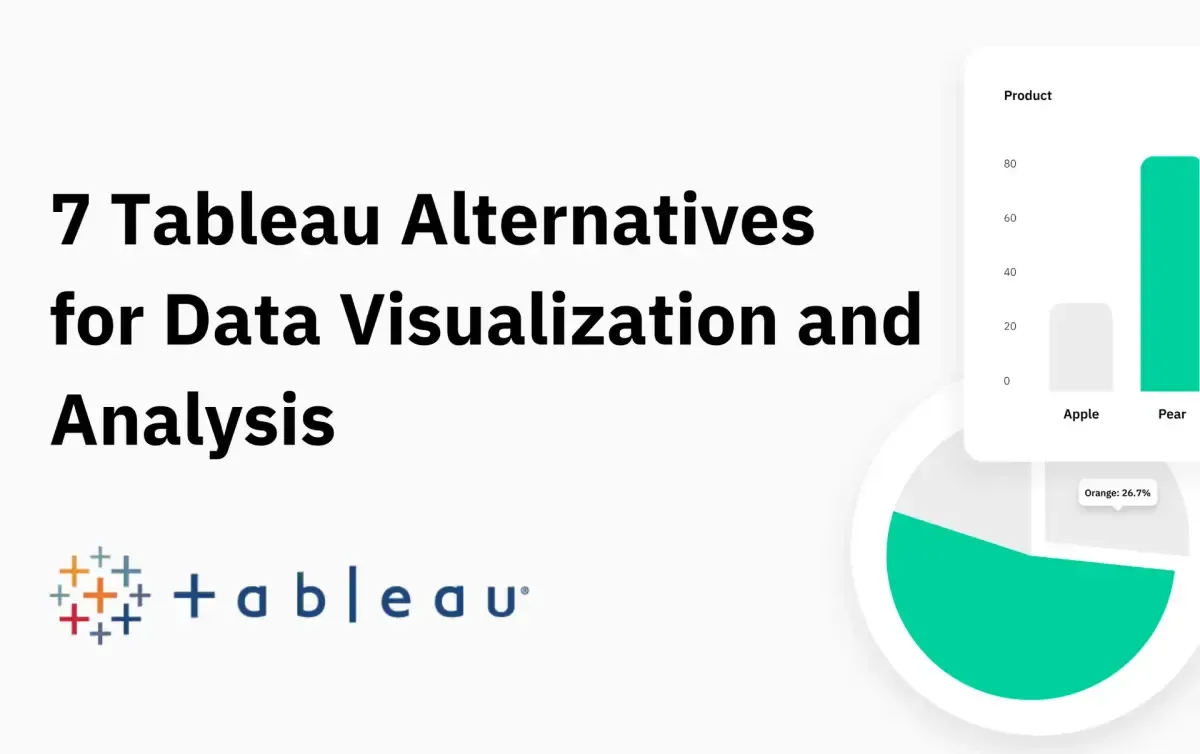
Top Tableau Competitors and Alternatives to Consider for Your BI Needs
When it comes to Business Intelligence (BI) tools, Tableau is often a go-to option for many organizations, thanks to its powerful data visualization and user-friendly interface. However, it’s not the only player in the market. Whether you're seeking different features, better pricing, or specialized capabilities, several alternatives can meet your business needs.
In this blog, we’ll explore some of the top Tableau competitors and alternatives that can help you elevate your BI game.
1. Onvo AI: Next-Level Automation and Intelligence
Onvo AI is not just a BI tool; it is a comprehensive solution designed to transform how organizations analyze, visualize, and act on data. Combining advanced AI-driven analytics with intuitive dashboards, Onvo AI provides deep insights, predictive analytics, and automation capabilities that simplify complex data-driven decision-making processes. Onvo AI’s ability to handle large datasets, offer real-time analytics, and automate workflows gives it a competitive edge.
Why Consider Onvo AI:
- AI-driven insights for smarter decision-making.
- Automated workflows to streamline operations.
- Real-time analytics for actionable, data-backed strategies.
- Customizable dashboards and intuitive user experience.
2. Power BI: Microsoft’s Enterprise-Ready Tool
Power BI by Microsoft is a robust alternative to Tableau, especially for organizations deeply integrated with Microsoft ecosystems like Azure, Office 365, and Excel. Its seamless integration with these tools allows for easy collaboration, data sharing, and automation. Power BI offers strong visualization capabilities, dashboard creation, and reporting tools, all at a competitive price.
Why Consider Power BI:
- Cost-effective, especially for enterprises already using Microsoft services.
- Excellent integration with Azure and other Microsoft products.
- Powerful AI features and real-time analytics capabilities.
3. Qlik Sense: Data Exploration at Its Core
Qlik Sense is a dynamic BI tool known for its associative data engine, which allows users to explore data freely, without being constrained by pre-set paths. Unlike Tableau, Qlik Sense emphasizes self-service BI, making it a great choice for organizations that prioritize data exploration and in-depth insights.
Why Consider Qlik Sense:
- Unique associative data engine for better data discovery.
- Strong self-service capabilities for non-technical users.
- Highly scalable, catering to small businesses as well as large enterprises.
4. Looker: Google Cloud’s Data Modeling Powerhouse
Looker, part of Google Cloud, focuses heavily on data modeling and real-time data integration. It is designed for businesses that need comprehensive data exploration, enabling teams to access up-to-date data directly from cloud platforms. Looker is ideal for companies already operating within the Google ecosystem.
Why Consider Looker:
- Great for real-time analytics and cloud data integration.
- Comprehensive data modeling capabilities.
- Fits seamlessly with Google Cloud and BigQuery.
5. Sisense: A Developer-Friendly Solution
Sisense sets itself apart from Tableau by offering advanced customization options and a developer-friendly environment. It allows for the embedding of analytics into applications and products, making it a strong option for companies that need highly customized BI solutions.
Why Consider Sisense:
- Excellent for embedding analytics into products and services.
- High customization and flexibility for developers.
- Scalable to handle large datasets and complex queries.
6. Domo: Cloud-Based and Mobile-Friendly
Domo is a cloud-based BI platform that makes it easy for businesses to integrate data from various sources and visualize it on interactive dashboards. Its user-friendly mobile experience makes Domo a great option for organizations that prioritize accessibility and collaboration on the go.
Why Consider Domo:
- Cloud-based with robust mobile support.
- Strong integration with third-party applications.
- Intuitive dashboard and data visualization features.
7. Zoho Analytics: Budget-Friendly and Comprehensive
Zoho Analytics is a great Tableau alternative for small to medium-sized businesses that require strong BI capabilities without breaking the bank. It provides data visualization, reporting, and predictive analytics, while integrating seamlessly with the broader Zoho suite, including CRM and other enterprise tools.
Why Consider Zoho Analytics:
- Cost-effective, especially for small businesses.
- Easy integration with other Zoho applications.
- Simple and intuitive for non-technical users.
8. MicroStrategy: Enterprise-Grade BI
MicroStrategy offers enterprise-grade analytics with a focus on scalability and data governance. Its strengths lie in its ability to handle large datasets and its focus on advanced analytics. For organizations that need a highly secure and scalable solution, MicroStrategy is a top-tier option.
Why Consider MicroStrategy:
- Advanced analytics and enterprise-scale capabilities.
- Focus on security, data governance, and compliance.
- Strong support for mobile BI.
Conclusion: Choosing the Right BI Tool
While Tableau continues to be a market leader, these competitors and alternatives offer unique features that may better suit your specific needs. From Power BI’s seamless integration with Microsoft products to Onvo AI's unique AI powered capabilities, the right BI tool for your organization depends on your goals, budget, and the specific functionalities you need.
Consider these alternatives when evaluating your BI strategy, and choose the one that empowers your team to make smarter, data-driven decisions.
Explore Onvo AI's BI Solutions
At Onvo AI, we understand the importance of choosing the right business intelligence tool. Whether you're looking for advanced data modeling, real-time analytics, or customizable dashboards, our AI-driven solutions are designed to enhance your BI capabilities.
Get in touch with us to learn how we can help transform your data into actionable insights.
